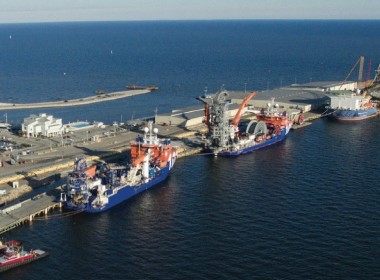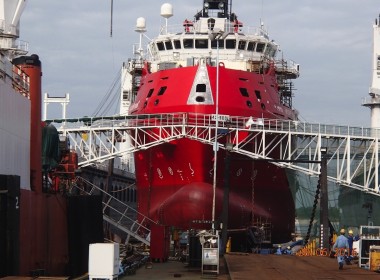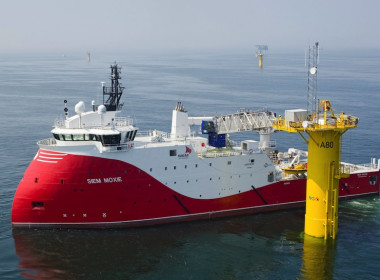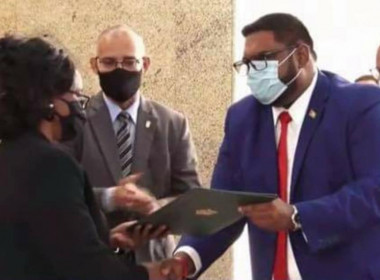COLUMN | Reaping what you sow: McDermott, Seatrium, Gunvor and Trafigura [Offshore Accounts]

It seems appropriate to get all biblical this week, just after Easter. When Saint Paul wrote in his letter to the Galatians that “a man reaps what he sows,” he probably wasn’t thinking about corruption in the oil and gas industry two millennia later.
But the last month has seen no less than four cases of corruption among major players moving towards resolution – a reminder of how prevalent bribery has been in the sector, and that there are, from time to time, consequences to corrupt actions.
Colombian state oil company now owns 19.9 per cent of McDermott!
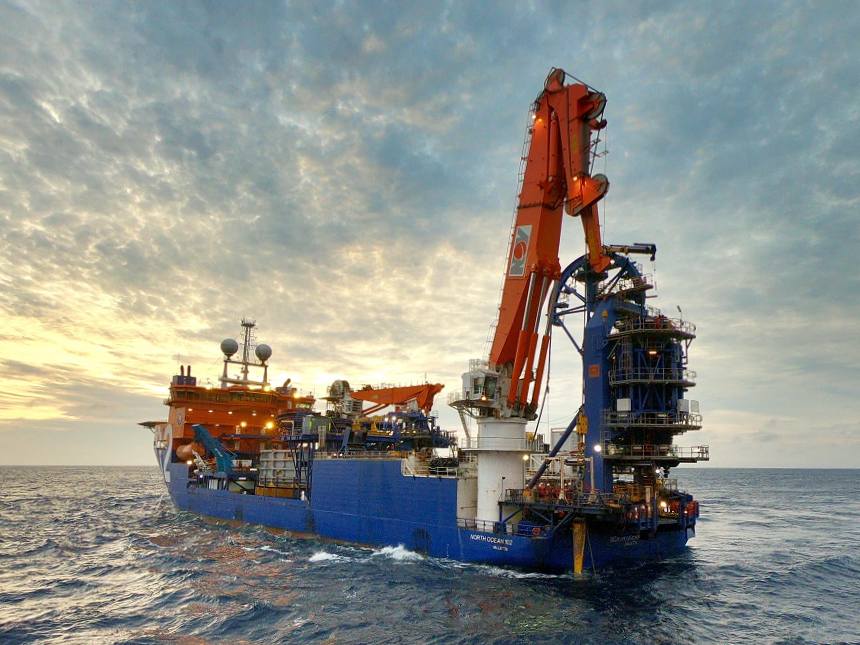
First up, a case you probably missed because the industry press was asleep on the job. McDermott International, the “troubled” offshore construction company, put out an innocuous looking press release a week ago.
Entitled “McDermott announces completion of Transaction Support Agreement and amendment and extension of credit facilities,” it looked to be the driest and most boring document possible. There were no numbers mentioned in the document – just a few bland quotes from the CEO about rolling over McDermott’s letter of credit and term loan facilities successfully, and a pat on the back for the company’s lawyers and advisers. What a snooze.
Don’t look at Kikeh award…
The press release was largely overshadowed by an announcement on the same day that McDermott had won a contract from Thailand’s PTTEP for the change out of a flexible gas lift riser line at the Kikeh Field floating production storage and offloading vessel (FPSO) off Malaysia. This was valued at “up to US$50 million” and seemed a lot meatier than the blah blah blah about the ill-defined restructuring.
But McDermott is like an illusionist, and we should not be looking at what they want us to focus on. Indeed, the magician’s rabbit was being smuggled into the top hat before our very eyes.
Listen to what Bogota says
Attention needed to be directed at a parallel press release from Colombia’s state oil company, Ecopetrol, issued on the same day. No, not the eye-catching report that the Colombian government will shortly begin a subsea excavation of the sunken Spanish galleon San Jose, which was sunk in a sea battle with the Royal Navy in 1708 not far from Cartagena with, apparently, tons and tons of gold coins and treasure aboard.
Instead, Ecopetrol’s announcement featured tangible riches for the company in the here and now. It announced that it was receiving 19.9 per cent of the share capital of McDermott International, in preferred shares, as a settlement for the disastrous delays to the refinery project in Cartagena that has plagued McDermott since 2019.
It was then that we first reported on the billion-dollar litigation hanging over the company, which its management initially poo-ed poo-ed as unlikely to succeed, and the allegations that its predecessor company Chicago Bridge and Iron Company had bribed Ecopetrol refining officials with the services of sex workers worth millions of dollars.
In August last year, the results of the arbitration were announced: a comprehensive defeat for McDermott and a one billion dollar award to Ecopetrol.
Good news for McDermott customers and suppliers
This settlement is immensely important for three reasons. Firstly, there is the fact that Ecopetrol now has a lot of weight and influence over McDermott, giving McDermott a shareholder base with some clout, much more than its private equity holders, and certainly clout within Latin America.
Secondly, it is not clear how the Colombian company can exit its position in McDermott without an initial public offering, so this brings forward the likelihood of such a public listing.
However, such a share offering looks highly unlikely until McDermott can also settle the more than US$500 million claim from BP for its alleged breach of contract on a pipelay job on the Greater Tortue Ahmeyim (GTA) project in Senegal last year, as we reported here.
Thirdly, however, by giving Ecopetrol shares, McDermott has turned a one-billion-dollar liability into equity, and so it avoids having to pay the aggrieved Colombians in cash, something that the Houston-based company has consistently struggled to find. The renewal of its performance bond facility also means that the American company can continue bidding to its core Middle Eastern customers like Saudi Aramco and Qatar Energy, which demand such bonds.
Now, if only BP and its partners would copy Ecopetrol’s example and take a wad of McDermott shares in return for ending the GTA litigation, perhaps McDermott would finally be out of trouble. When that happens, we expect Subsea7 or even Saipem to make a move.
Michael McKelvy, the President and CEO of McDermott, has genuinely pulled a rabbit out of the hat with this deal with Ecopetrol, so he deserves a round of applause. Let’s see if he can surprise BP on GTA with the appearance of a white dove of peace from up his sleeve.
Former Seatrium executives charged with corruption, at last
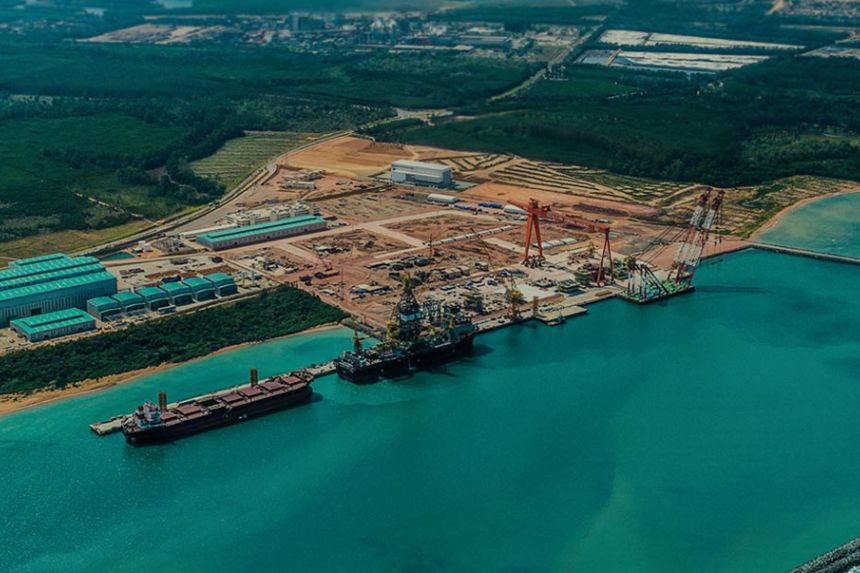
Readers of this column will note that we have been consistently amazed by the attitude of the Singaporean authorities over the historic bribes paid in Brazil by individuals formerly working for the city-state’s two largest shipyards.
Both Jurong Shipyard, which was then part of Sembcorp Marine (Sembmarine), and Keppel Offshore and Marine’s rig-building yards in Brazil were caught up in the Lava Jato bribery scandal. This involved millions of dollars of illegal payments to officials working for the crooked Brazilian state-owned rig company Sete Brasil, which has now been liquidated.
Keppel and Sembmarine have subsequently merged their offshore activities into a new enterprise called Seatrium. The cases have been rolling on and on for a decade.
Brazilian prosecutors and the United States Department of Justice (DOJ) were quick to move against the malfeasance they found relating to the former employees of the Singaporean companies.
The Singaporean authorities, not so much.
Keppel hit with US$422 million fine
Keppel had previously settled criminal charges with the US DOJ for the massive sum of US$422 million in 2018 (See the summary here and the full DOJ indictment here.) and twelve of its employees were fined nearly US$9 million, with two jailed, including Jeffrey Chow, who was an American citizen.
Seven Keppel employees involved in the Brazilian corruption left the firm, and seven more “were demoted or given written warnings” in Singapore.
It always struck us as bizarre that the Singapore authorities were so toothless against Keppel’s Singaporean senior management, given that the company paid out US$422 million in fines. The Singapore authorities cited “evidentiary difficulties” as the reason for the decision not to prosecute Keppel in Singapore.
The Minister of the Prime Minister’s Office stated in parliament in 2023 of Keppel’s board that “constructive knowledge of an offence does not constitute an offence under the Prevention of Corruption Act.”
Interesting.
Sembmarine staff get the call in 2020
In February 2020, Brazilian prosecutors filed money-laundering charges against two individuals connected to Sembmarine.
Martin Cheah Kok Choon, who was the president of Sembmarine’s Brazilian rig building subsidiary Estaleiro Jurong Aracruz, was charged in Brazil with money laundering, but he disappeared and his whereabouts remain unknown. The Brazilian “consultant” Guilherme Esteves de Jesus was meanwhile also charged with money laundering relating to payments made by Sembmarine’s Brazilian subsidiary.
Sembmarine was quick to stress that not only had Mr Cheah been fired, but also that the consultancy contracts with companies connected to Mr de Jesus had been suspended indefinitely.
Mr de Jesus was sentenced to 19 years and four months in prison and was also fined by the Federal Courts of Curitiba in early 2020. He made several payments to Petrobras treasurer João Vaccari Neto in order to obtain drilling unit construction contracts with Sete Brasil in 2012. Mr Neto was also jailed as per the Organised Crime and Corruption Project.
In 2020, Sembmarine said that that it had also lodged a further suspicious transaction report with the Commercial Affairs Department of the Singapore Police Force against Mr Cheah, adding to the one it lodged in July 2019. The company emphasised that the Brazilian authorities has acted against Mr Cheah in a personal capacity, not against the company or its other directors in Singapore.
At that time.
De Jesus resurrected?
Just after Christmas last year, Seatrium said in a statement that both Guilherme Esteves de Jesus and Martin Cheah Kok Choon had been acquitted by the next layer of the Brazilian courts.
As usual, all the best announcements come out between Christmas and New Year in offshore. Seatrium noted that under Brazilian law, the federal prosecutor’s office may appeal that decision.
Singapore strikes
In May last year, the Corrupt Practices Investigation Bureau (CPIB) in Singapore stated that it had commenced investigations on the alleged corruption offences that occurred in Brazil. Given that the authorities in Singapore had first received notice of these events in 2019, this seemed a little… tardy.
In February 2024, Seatrium announced that it had reached in-principle settlement agreements with the Brazilian authorities in relation to the case. Last week, Seatrium put out a release to the Singapore stock exchange to say that the Attorney-General’s Chambers, the office of the Public Prosecutor in Singapore, had agreed to a deferred prosecution agreement with the company.
Under this agreement, Seatrium has to pay a financial penalty of US$110 million in Singapore, although US$53 million payments to be made by the company to the Brazilian authorities will be credited against the financial penalty in Singapore. So, Seatrium will pay around US$57 million to the Singapore government.
The company adjusted its 2023 results accordingly, announcing a revised net loss of just over SG$2 billion (US$1.5 billion). Seatrium stressed that it “also wishes to emphasise that it remains committed to the highest standards of compliance, including in particular zero tolerance for bribery and corruption.”
Good.
Now the former CEO is charged
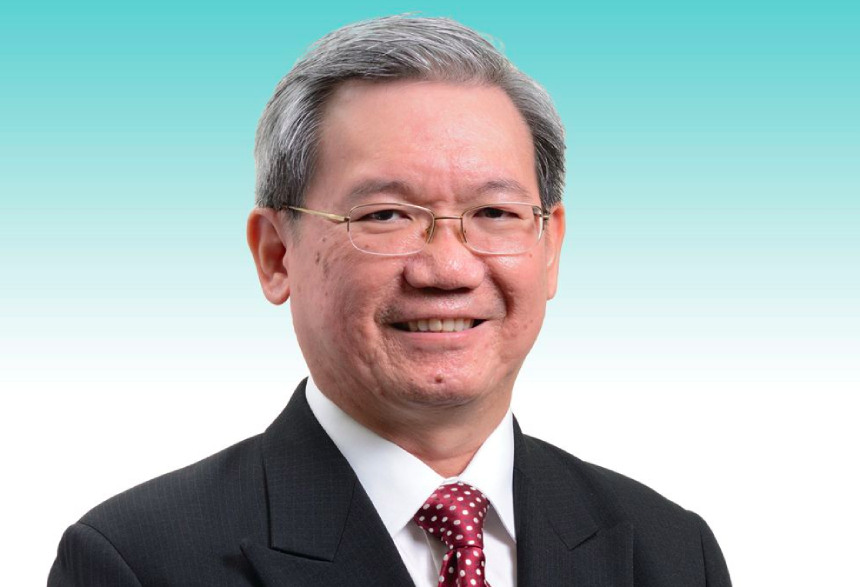
Remember our advice to be paying attention on the eve of public holidays?
Last Thursday, the day before the long Easter weekend, two former senior officers of Sembmarine were finally charged with crimes relating to their allegedly paying bribes of more than US$20 million in Brazil.
Surprisingly, it was not Martin Cheah Kok Choon in the dock, but Sembmarine’s ex-chief executive, Wong Weng Sun. The 62-year-old was charged at Singapore’s State Court with five counts of conspiring to corruptly give gratification to Guilherme Esteves de Jesus, the former Brazilian fixer and consultant to Sembmarine.
Mr Wong was president, executive director and chief executive of Sembcorp Marine for 14 years and was Jurong Shipyard’s managing director at the time of the offences between 2009 and 2013. He was also charged with obstruction of justice.
Jurong Shipyard’s senior general manager at the time of the offences, Lee Fook Kang, who is now 75 years old, was also charged with the same five bribery counts. Prosecutors allege that on two occasions in 2009, in Singapore or elsewhere, Wong and Lee allegedly conspired to corruptly give to Mr de Jesus gratifications totalling not more than US$2 million, for the ultimate benefit of one or more Brazilian state officials, “as an inducement to advance the business interests of Mr de Jesus in Brazil,” according to the CPIB.
Slow justice is better than no justice
I love Singapore and I don’t want to sound negative, but seriously? It took the CPIB four years after prosecutors in Brazil had pressed charges for corruption relating to events which took place in 2009 to 2014?
I guess we shouldn’t be surprised. The Commercial Affairs Department of the Singapore Police Force and the Monetary Authority of Singapore took almost seven years to place charges against certain directors of Swiber for reckless disclosure and neglect. That was after the SGX had reviewed the case and found that Swiber had been in breach of stock exchange rules by making a misleading announcement in 2015.
That Swiber case remains unresolved. I hope that we don’t have to wait until 2034 or 2039 to find out what malfeasance has been going on this year in the Lion City.
Gunvor and Trafigura: oil trading houses convicted
One of the biggest conclusions that one can draw from the whole sordid Lava Jato case in Brazil is that if one company in a sector is paying bribes, others are probably doing the same. This proves that corruption can become normalised as a necessary way of doing business in certain industries.
We saw this in the engineering, procurement, construction and installation segment, with legacy companies of McDermott, the Wood Group, and Petrofac all facing litigation and corruption charges.
This has definitely proved true in the oil trading sector.
Glencore and Vitol led the way… to court
In December 2020, the Commodity Futures Trading Commission in the US issued an order filing and settling charges against Vitol for manipulative and deceptive conduct spanning from 2005 to early 2020, involving foreign corruption in Brazil and physical and derivatives trading in the US and global oil markets, including attempted manipulation of two S&P Global Platts physical oil benchmarks. The order required Vitol to pay more than US$95 million in civil monetary penalties and disgorgement.
In November 2022, we reported that Glencore, the Swiss-based, London-listed trading and mining house, had admitted to massive bribery in Africa and that it agreed to pay out a total of around US$1.5 billion in fines and restitution. The company admitted guilt in this wide-ranging corruption scandal, which stretched across multiple jurisdictions over many years and involved both kickbacks to win oil shipments in Nigeria, Equatorial Guinea, Ivory Coast, South Sudan, and Cameroon, and the manipulation of American fuel oil price benchmarks.
Glencore also agreed to pay US$40 million as a settlement with the Brazilian government for bribery there.
Now Gunvor and Trafigura follow with over US$750 million in fines
Further evidence of the widespread corruption permeating the massively profitable oil trading business emerged this year. Gunvor and Trafigura have also gone down.
When four major players in one industry admit systemic bribery, you have to wonder what else is going on elsewhere in the sector, and what abuses occurred even further in the past.
Trafigura was paying millions in Brazil
Last week, just before Good Friday, Trafigura, the international commodities trading company with its primary operations in Switzerland, pleaded guilty and agreed to pay over US$126 million to resolve an investigation by the US DOJ into violations of the Foreign Corrupt Practices Act (FCPA), stemming from the company’s illegal scheme to pay bribes to Brazilian government officials to secure business with (spoiler alert)… Petrobras. It is always Petrobras, is it not?
The DOJ said that Trafigura pleaded guilty to conspiracy to violate the anti-bribery provisions of the FCPA. Pursuant to the plea agreement, Trafigura will be criminally fined US$80 and will face forfeiture of US$46 million of illegal profits from the corruption. This a criminal conviction unlike the deferred prosecution agreement the Singaporean authorities gave Seatrium.
The DOJ stated that it would credit up to US$27 million of the criminal fine against amounts Trafigura pays to resolve an investigation by law enforcement authorities in Brazil for related misconduct.
“Between approximately 2003 and 2014,” the DOJ said in a statement, “Trafigura and its co-conspirators paid bribes to Petrobras officials in order to obtain and retain business with Petrobras. Beginning in 2009, Trafigura and its co-conspirators, who met in Miami to discuss the bribery scheme, agreed to make bribe payments of up to 20 cents per barrel of oil products bought from or sold to Petrobras by Trafigura and to conceal the bribe payments through the use of shell companies, and by funnelling payments through intermediaries who used offshore bank accounts to deliver cash to officials in Brazil.”
What a predictable and well-trodden corruption scheme. But Trafigura’s fine was small compared to the fines faced by one of its rivals doing similar work elsewhere…
Gunvor was paying millions in Ecuador
The DOJ also reached a large settlement Gunvor for US$661 million last month, according to JD Supra. Remarkably, as with Trafigura, the DOJ did not permit the Swiss-headquartered trading house to enter into a deferred or non-prosecution agreement.
Instead, Gunvor pleaded guilty to one count of conspiracy under the FCPA in the US. Following the plea agreement, the court sentenced Gunvor to pay a criminal monetary penalty of US$374 million and to forfeit US$287 million, being the proceeds of its bribery.
The conviction is related to Gunvor’s systemic illegal payments made to officials of the Ecuadorian Ministry of Hydrocarbons and of Petroecuador, the country’s state-owned oil company. The officials received the bribes in exchange for granting Gunvor contracts to acquire oil products from Ecuador on terms beneficial to Gunvor.
Ecuador produces around 480,000 barrels of crude oil per day, and the country has recently faced a massive upsurge in violence with politicians assassinated, kidnapping and murders rampant, and 13,000 people arrested in a state crackdown on brutal drug gangs.
Swiss authorities join DOJ in fining Gunvor
In total, the DOJ estimated that Gunvor earned more than US$384 million in profits from the oil contracts it corruptly obtained with Petroecuador. The Office of the Attorney General of Switzerland simultaneously announced a parallel resolution of its investigation into Gunvor’s misconduct, and this was settled with the payment of approximately US$98 million by Gunvor to the Swiss authorities.
Even more remarkable for the criminal conviction for the company was the fact that the DOJ also succeeded in securing convictions in the Eastern District of New York of four individuals who were implicated in Gunvor’s bribery scheme. As per the Justice Department website, these included Antonio Pere Ycaza and Enrique Pere Ycaza, both former consultants for Gunvor. They both pleaded guilty in 2020 to one count of conspiracy to violate the FCPA each and one count of conspiracy to commit money laundering.
Watch out! Gold timepiece as bribe
Raymond Kohut, a former Gunvor employee and agent, also pleaded guilty in 2021, to one count of conspiracy to commit money laundering, whilst Nilsen Arias Sandoval, a former senior Petroecuador staffer, pleaded guilty in 2022, to one count of conspiracy to commit money laundering. Among other things, a Gunvor employee directed one of the intermediaries to use the money to purchase an 18-karat gold Patek Philippe watch for Mr. Arias.
Individuals held accountable
The prosecutions in Singapore and the United States are thus welcome as the bribe payers reap what they have sown.
However, as we observed in our coverage of Glencore before, it is very unusual for the recipients of bribery to face consequences of their greed. Usually, they escape scot-free.
Apart from Mr Arias, one notable exception is the former Filipino general Carlos Garcia whose wife Clarita was stupid honest enough to write to the American government explaining when she was stopped at San Francisco International Airport with US$100,000 in cash in 2003, that the money was actually bribes paid by companies to her husband for awarding them military contracts, so she should be permitted to keep it.
General Garcia was released from prison last year. It may be April 1, but you couldn’t make up such a crazy story.
Further reading
An overview of the Lava Jato scandal in Brazil can be found here.
Michael Volkov’s excellent podcast on the Gunvor corruption conviction is available here
To learn more about the oil trading business and the billionaires it created, read the excellent book The World for Sale: Money, Power and the Traders Who Barter the Earth’s Resources by Javier Blas and Jack Farchy (2020), which we reviewed here.
Contacts for confidential reporting on fatal accident
Further to our piece last week, if you have information relating to Perenco’s safety record or the role of INSB in enforcing safety standards, or information on the Gabon registry and the Dark Fleet, you can reach the author via [email protected] or the editor via [email protected]. All information will be treated confidentially.


